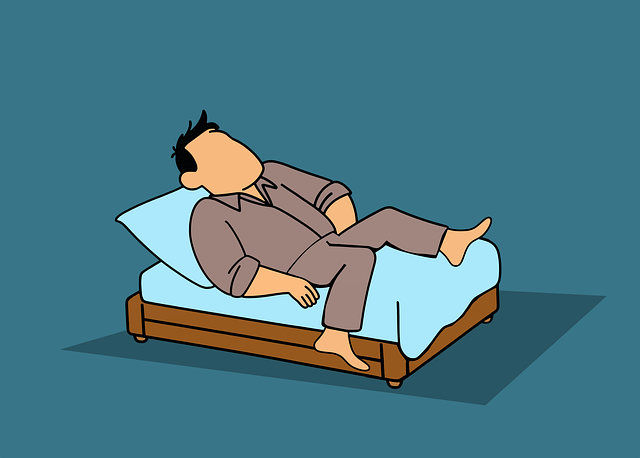High-Dose Melatonin Therapy offers a potent solution for sleep disorders, restoring circadian rhythm balance with quicker sleep onset. While safe under professional guidance, it carries potential risks including side effects and dependencies. Dosages should be monitored and adjusted gradually by healthcare providers, who assess long-term use and track patient progress to ensure safety and efficacy.
“Discover the potential power of High-Dose Melatonin Therapy as a revolutionary sleep aid. This therapy, involving significantly higher melatonin doses than conventional treatments, offers a promising approach for those struggling with insomnia and sleep disorders.
In this article, we’ll explore the science behind melatonin, its remarkable benefits, and any associated risks. We’ll also provide a comprehensive guide on how to safely implement high-dose melatonin therapy, ensuring you have all the information needed to make informed decisions about your sleep health.”
- Understanding High-Dose Melatonin Therapy
- Benefits and Potential Risks of High-Dose Melatonin
- Implementing High-Dose Melatonin Therapy Safely
Understanding High-Dose Melatonin Therapy

High-Dose Melatonin Therapy involves administering significantly higher levels of melatonin, a hormone naturally produced by our bodies to regulate sleep-wake cycles, than what is typically found in over-the-counter supplements. This approach aims to restore balance to the body’s circadian rhythm, which governs sleep and wake times, and can be particularly effective for individuals struggling with chronic insomnia or disrupted sleep patterns.
Compared to standard melatonin doses, high-dose therapy offers potential benefits such as quicker onset of sleep and improved sleep quality. It is often considered a safe and non-addictive option for sleep aid, making it an attractive alternative to prescription medications. However, given its potency, high-dose melatonin therapy should be undertaken under professional guidance to ensure optimal results and minimize potential side effects.
Benefits and Potential Risks of High-Dose Melatonin

High-dose melatonin therapy offers a promising solution for those struggling with sleep disorders, but it’s not without its potential drawbacks. One of the key benefits is its ability to rapidly improve sleep quality and duration, making it particularly effective for jet lag, shift work, and certain sleep conditions like insomnia. Melatonin, a hormone naturally produced by our bodies, plays a vital role in regulating the sleep-wake cycle. By administering higher doses, this therapy can help reset the body’s internal clock more efficiently.
However, as with any treatment, there are risks to consider. High-dose melatonin may cause side effects such as headaches, nausea, and fatigue. It can also interact with certain medications, so it’s crucial for individuals undergoing this therapy to consult a healthcare professional first. Long-term use is relatively unstudied, and excessive melatonin levels might disrupt the natural production of this hormone, leading to potential dependencies or prolonged sleepiness. Therefore, it’s essential to monitor its effects and follow recommended dosages closely.
Implementing High-Dose Melatonin Therapy Safely

Implementing high-dose melatonin therapy requires careful consideration and guidance from a healthcare professional. As melatonin is a hormone that regulates sleep-wake cycles, its use should be tailored to individual needs. Over-the-counter supplements are widely available, but prescription forms with higher doses may be necessary for certain conditions like jet lag or insomnia. It’s crucial to start with the lowest effective dose and gradually increase under medical supervision to avoid potential side effects.
Regular monitoring is essential during high-dose melatonin therapy. This includes tracking sleep patterns, mood changes, and any unusual symptoms. Given its interaction with various bodily systems, long-term use may require periodic assessments by a healthcare provider. Compliance with prescribed dosages and timing is vital to ensure safety and efficacy of the treatment.
High-dose melatonin therapy presents a promising approach for improving sleep quality, but it’s essential to balance its potential benefits against the risks. While research suggests its efficacy in certain populations, careful consideration and expert guidance are crucial before implementation. Always consult a healthcare professional to determine if high-dose melatonin therapy is suitable for your individual needs and to ensure safe use, monitoring potential side effects, and avoiding interactions with other medications.

